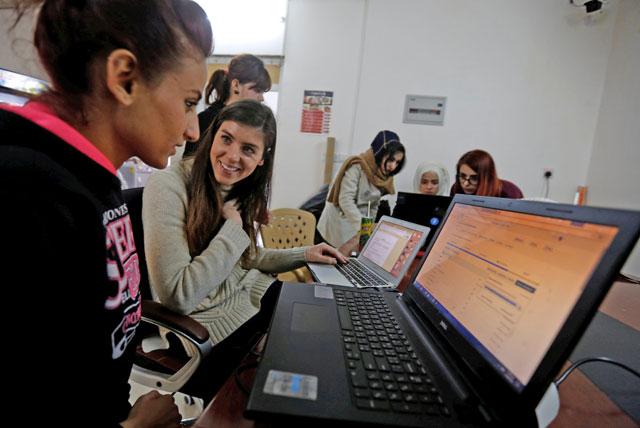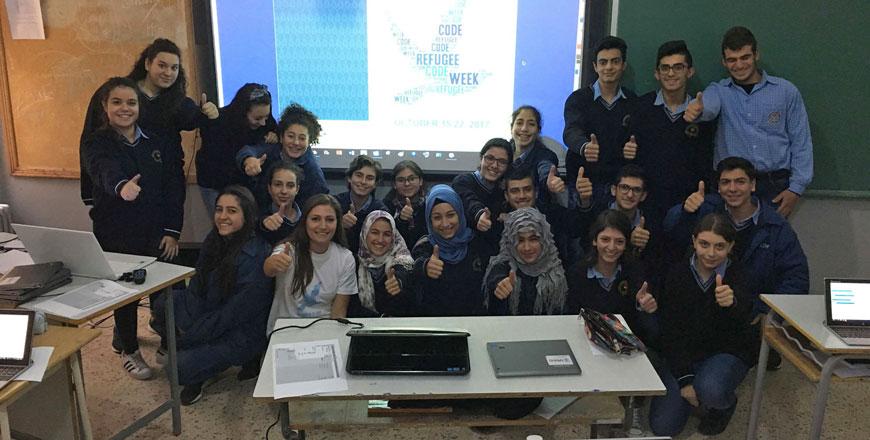You are here
Having fled fighting, Iraqis and Syrians learn to code
By Reuters - Feb 09,2017 - Last updated at Feb 09,2017

Syrian refugees and displaced Iraqis attend their class to learn basic and advanced coding skills at Re:Coded boot camp, in Erbil, on February 1 (Reuters photo)
ERBIL — At a training course in northern Iraq, people displaced by the wars in Mosul and neighbouring Syria are learning how to code.
Some are already being sought by global companies even though they live in sprawling, dusty camps near Erbil, the capital of the Kurdish region, not far from the Daesh terror group’s last major stronghold in Iraq.
The students come from regions seized by the extremist militants in 2014 when they swept through parts of Iraq and Syria, and from other areas hit by Syria’s civil war.
The New York-based group overseeing the Iraq Re:Coded project has started a training course at a residential house in Erbil, funded by the United Nations Development Program.
Many students are highly educated but find no jobs in their fields as the flood of displaced people made employment scarce.
“I was so sad to leave my studies and I worried about my future,” said Joory Al Aamed, 27, who fled Damascus with her family in the middle of a computer engineering degree. “Re:Coded gave me a new hope to plan for my future.”
The project teaches everything from English language and web basics to object-oriented programming. It follows the curriculum of New York’s Flatiron School and is overseen by New York University.
‘Herculean task’
Re:Coded is looking to place students at foreign companies and major Iraqi firms, while some are seeking further education, including computer science degrees.
But it faces spiralling costs and is struggling to retain students who must also dedicate time to more short-term needs such as feeding their families.
“Even with the best of intentions, bringing world-class higher education to displaced people — and connecting them to meaningful employment — is a Herculean task,” said Thomas Hill, a professor of global affairs at New York University who oversees the project.
In Erbil, 26-year-old Gabe Jackson is enthusiastic about his role as a teacher.
The former legal researcher became disillusioned with the large corporations he was working for in New York and did not feel able to make any positive impact on the world.
So last year, he took the Flatiron course, before heading to northern Iraq in January to pass on all he had learned.
“When you educate, you allow people to create their own solutions and bring their ideas to life. It gives them power.”
Related Articles
AMMAN — “Once I learned Scratch coding and web development, I started having a purpose again, and that restored my faith,” said 23-year-old
ERBIL, Iraq — When a mob attacked Abu Jasin on the streets of Erbil in northern Iraq, he feared he would never be safe in the country, not e
A suicide bomber detonated an explosives-rigged vehicle in the heart of the usually secure Iraqi Kurdish regional capital Erbil on Wednesday, killing four people, officials said.
















